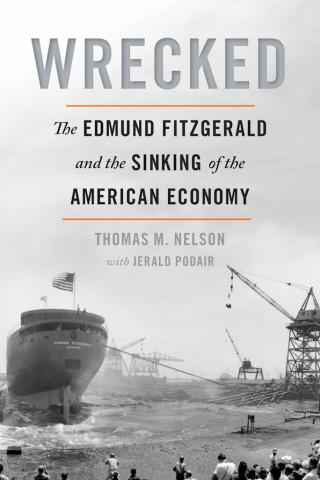We do know that the ship was overloaded, overworked, and aging, that it had been constructed with low-grade steel, and that its welding was sub-standard. It also had a loose keel, the structural beam that runs from bow to stern along the bottom of a ship, which Captain McSorley knew about but chose to ignore, hoping to squeeze one more sailing season out of the ship. “I don’t give a f**k,” he was overheard to say when he was told of the defect. “All the son of a bitch has to do is stay together one more year. After that I don’t give a s**t what happens to it.”1
McSorley wasn’t the only one. Oglebay Norton Corporation, the shipping firm that operated the Fitz, skimped on maintenance, treating it as little more than a cash cow. Combine all this with a brutal storm on this most brutal of the Great Lakes, and the result was the wreck of the Edmund Fitzgerald.
There is, however, a broader explanation for the tragedy of the Fitz, one that extends beyond the sailors who steered it, the engineers who constructed it, and even the “gales of November” that helped sink it. The wreck of the Fitzgerald was a metaphor for that of the American industrial economy, centered in the same Midwest the ship called home, in the last third of the twentieth century. Years of neglect and conscious decisions by corporate executives and policy makers doomed both the American industrial economy and the Fitzgerald.
Great Nations Build Things
It has been said that “great nations build things,” and the United States stopped building things around the time the Fitz went down. For most of the twentieth century, the federal government offered subsidies to the American shipbuilding industry that kept it competitive with foreign firms and made it possible for the nation to be the “arsenal of democracy” needed to win the Second World War. By the 1970s, however, those supports had disappeared, and the government was tacitly encouraging the purchase of ships overseas, a great boon to the economies of South Korea, Japan, and in time, China, while Midwest shipyards declined and shuttered.
As they did, their home communities spiraled. The knock-on effects were dire: hollowed out downtowns, closed or relocated factories, generational joblessness, drug use, and deaths of despair. The 1970s ushered in the era of neoliberalism in the American economy, featuring an emphasis on markets, free trade, tax and spending reductions, and deregulation. In a globalized economy that stressed mobility of goods, labor, and capital, American industries and workers were inherently disadvantaged. Why make it in the USA if you could buy it cheaper somewhere else? America was unprepared for a world economy of which it was not the sole master. As Thomas Nelson and I write in Wrecked: The Edmund Fitzgerald and the Sinking of the American Economy, the United States “lacked a simple industrial strategy to guide tax policy, education and workforce development, trade agreements and investment in basic science research. The United States would navigate the shoals of an emerging global economy rudderless.”2
